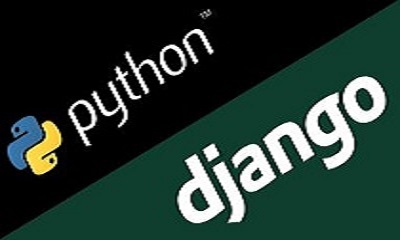In the world of web development, choosing the right framework is crucial to ensuring a smooth development process and delivering a high-quality, user-friendly product. Django, a high-level Python web framework, is a popular choice among developers because of its speed, security, and scalability. But what makes Django particularly stand out is its exceptional usability, which has made it one of the most widely adopted frameworks for building robust web applications. Let’s explore why Django’s usability continues to impress both developers and businesses alike.
1. Ease of Use for Developers
Django was designed with developer productivity in mind. The framework’s structure is clear, intuitive, and easy to follow, even for developers who are new to the Python ecosystem. Django promotes the “DRY” (Don’t Repeat Yourself) principle, which reduces redundancy and makes it easier to maintain code. This not only saves developers time but also simplifies debugging and enhances the overall development experience.
With Django’s built-in admin interface, developers can easily manage application data, models, and content. This powerful feature allows for quick and easy setup without needing additional tools, which can be a huge time-saver, especially for those working on small-to-medium projects.
2. Clear Documentation
One of the standout features of Django is its exceptional documentation. For both beginners and experienced developers, the comprehensive and easy-to-follow Django documentation provides detailed explanations, guides, and examples to help users get the most out of the framework.
This extensive documentation is a game-changer when it comes to usability, as it makes learning and troubleshooting a lot more accessible. With its user-friendly tutorials and references, developers can quickly find solutions to problems and build their applications with confidence.
3. Built-in Features for Fast Development
Django comes equipped with a wealth of built-in features that make development faster and more efficient. Some of these include:
- Authentication and Authorization: Django includes robust tools for managing user authentication and permissions out of the box, meaning developers don’t need to implement complex security features manually.
- Database Integration: Django’s ORM (Object-Relational Mapping) enables seamless interaction with databases, allowing developers to work with models and query data using Python instead of SQL.
- Form Handling: With Django, form creation, validation, and error handling are streamlined. The built-in form-handling system ensures that data entry on your website or application is smooth and error-free.
These built-in functionalities save developers a lot of time and effort, allowing them to focus on the unique features of their project rather than reinventing the wheel for common web development tasks.
4. Scalability and Flexibility
Another reason why Django is highly usable is its ability to scale with your project. Whether you’re working on a small blog or a large-scale enterprise application, Django is flexible enough to handle both ends of the spectrum. As your project grows, Django can easily be expanded with additional features and can manage large amounts of data without compromising performance.
Django also allows developers to customize their applications by integrating third-party packages, which increases its flexibility even further. The Django ecosystem has a vast selection of reusable plugins and libraries to enhance functionality, making it easy to add features like payments, social logins, or analytics without starting from scratch.
5. Security Built-In
Security is one of the most critical concerns for any web application, and Django addresses this issue head-on. The framework provides several built-in security features to protect against common web vulnerabilities, including SQL injection, cross-site scripting (XSS), cross-site request forgery (CSRF), and clickjacking.
Moreover, Django automatically escapes outputs, ensuring that user-generated content is properly sanitized before being displayed. This built-in security functionality makes it easier for developers to create secure applications, giving both developers and end-users peace of mind.
6. Community Support
Django has a large, active, and passionate community that continuously contributes to its development. From extensive online forums and user groups to numerous tutorials and blog posts, the Django community provides valuable resources for developers seeking assistance with various challenges.
With such a supportive community, usability is further enhanced because developers can easily find answers to their questions, access pre-built solutions, and stay up to date with the latest best practices and updates.
Conclusion: Django’s Usability is Its Strength
When it comes to web development, Django stands out as a framework that is not only powerful but also incredibly usable. Its clear structure, comprehensive documentation, built-in features, scalability, security, and strong community support make it an ideal choice for developers of all levels.
Whether you’re building a simple blog, a complex e-commerce site, or a large-scale enterprise application, Django’s usability ensures that the development process is smooth, efficient, and enjoyable. So if you’re looking to speed up your development process while maintaining high standards of quality and security, Django might just be the perfect framework for your next project.

